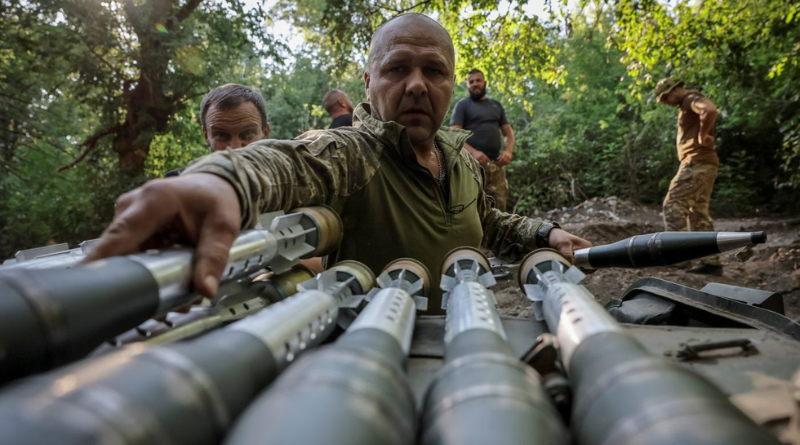
Praise the West But Pass the Ammunition
By Volodymyr Dubovyk, Visiting Scholar at the Fletcher Russia and Eurasia Program
There is a lot of noise about Ukraine and weapons and financing. But words alone do not indicate progress, and key elements of what’s needed are being forgotten.
It’s encouraging to hear President Biden and Britain’s Prime Minister Keir Starmer discussing an end to restrictions on the use of Western missiles so that Ukraine can use them against the Kremlin inside its territory.
And, as a Ukrainian, it’s also good to hear European Union (EU) plans to step forward with additional funding if a Trump victory in November leads to an aid cut-off.
But regrettably, the background for these developments has been a slowdown of assistance to Ukraine in key and increasingly urgent areas. These need fixing, and fast.
Some of the most highly praised and advertised efforts to help Ukraine have stalled or slowed. With Russian troops continuing to advance in Eastern Ukraine, the situation is becoming critical. Ukrainian frontline troops state again and again that the artillery shell famine is just one important shortage among many.
We were promised it would be otherwise. The EU pledge to deliver 1 million shells by early 2024 has fallen well short. To date it has sent somewhere around 650,000 shells. The ammunition supply initiative led by Czech President Pavel is also not meetings its objectives. It was initially announced that around 800,000 shells would be sent. As of today, the estimate is that around 500,000 may be delivered in total by the end of the 2024.
Another priority for Ukraine is more and better air defense systems. Here too the promises have not always been implemented. The Berlin-led air defense coalition has not been able to find enough of such systems for Ukraine. Germany itself has been responsible for the supply of most Patriot and other air defense systems. Seven more Patriot systems are promised but few have arrived.
The UK and allies like Norway announced 650 more air defense missiles and more than $300m for artillery shells on September 9. But this is well short of the massive supply that Ukraine needs.
One very useful tool that Ukraine can use to defend itself from Russian missile and drone strikes (among other things) is the F-16 combat aircraft. But here too, the supply is painfully slow. Ukraine was promised 80 airplanes, but so far received six have arrived. One of those was recently lost and the pilot killed, which became a setback for Ukraine.
To top all these disappointing examples one should also recall the lack of progress using $300bn of frozen Russian assets to help Ukraine. Discussions on this subject began at the very start of the Russian full-scale invasion but have dragged on ever since.
While it is clear the money will never return to Russia, and the G7 agreed to use some of this (around $50bn) to aid Ukraine, the issue has become enmeshed in disputes about payment guarantees and, once again, through attempts by Hungary to slow the process.
All of this lets Ukraine down, results in more Ukrainians, both soldiers and civilians being killed, undermines morale, puts the Ukrainian leadership in a difficult political situation, and, ultimately emboldens the aggressor, sending a signal that if Russia is patient enough it can very well outwait everyone.
In reality, this war is not lost. Ukraine is not doomed, nor should it be. There is still time for Ukraine and the pro-Ukraine coalition to get their act together, overcome difficulties and delays, and formulate the strategy that would lead to Russia’s failure.
What is needed is a sense of urgency and responsibility. Not just the fate of the Europe’s largest country is at stake, but that of the entire Euroatlantic security.
Dr Volodymyr Dubovyk is a Non-resident Senior Fellow at CEPA. He has been working at the Odesa I. Mechnikov National University since 1992, as an Associate Professor at the Department of International Relations since 1996, and has acted as a Director of the Center for International Studies since 1999.
Europe’s Edge is CEPA’s online journal covering critical topics on the foreign policy docket across Europe and North America. All opinions are those of the author and do not necessarily represent the position or views of the institutions they represent or the Center for European Policy Analysis.
(This post is republished from CEPA.)
